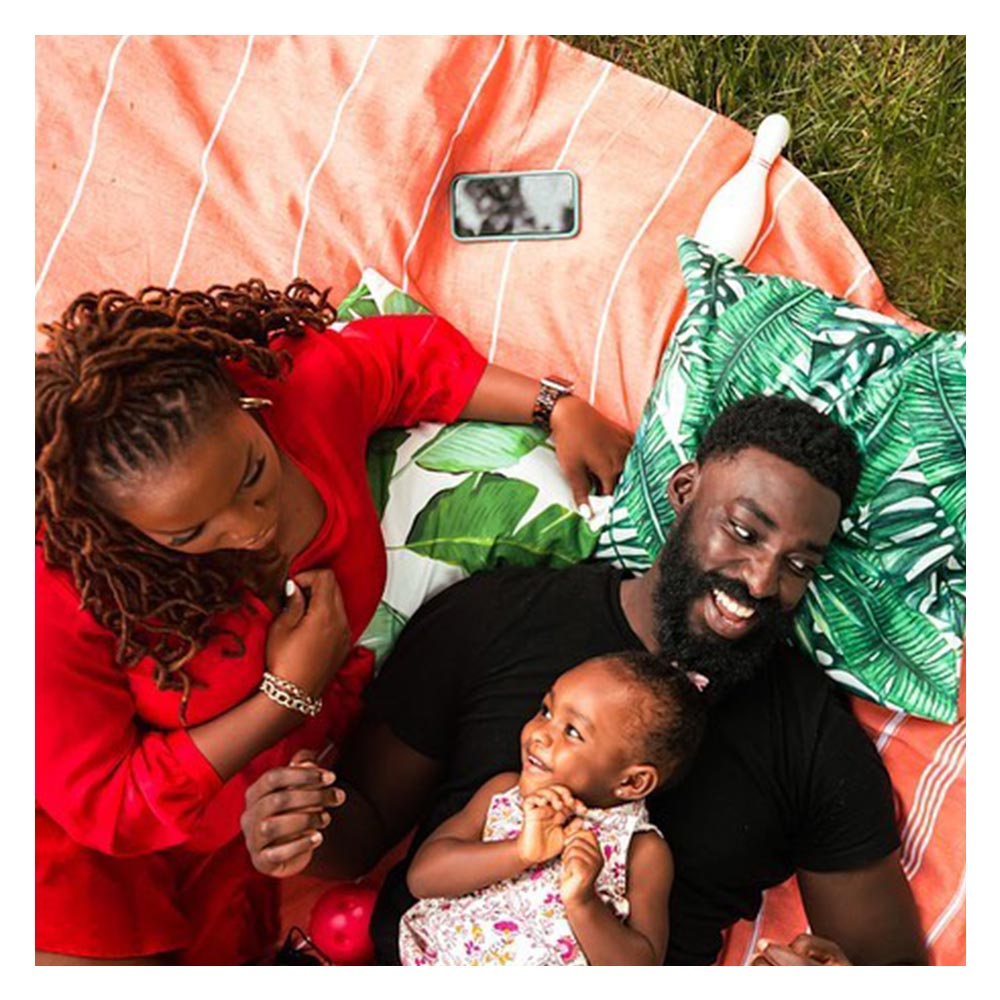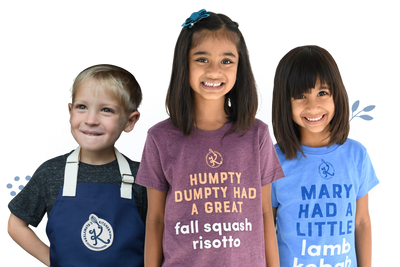
Taste Bud Profile
Eric Adjepong

"What stories could you tell if you were in tune with all of your senses?" I love this prompt from Chef Eric, because it not only encourages us to be pay more attention to the way we experience the world, but encourages us to share those experiences. Growing up with an immigrant cultural background in America can often be a push-and-pull between worlds and identities, but Chef Eric is someone who has found a way to be true to himself in all ways, and celebrate others who do the same.



Eric Adjepong: I was born in the US, but lived in Ghana for a few years when I was very small. My earliest food memory is probably from when I was 2 or 3 years old. I lived with my grandparents in a house on a hill, which had a long driveway leading down to the bottom. I remember that there were always food vendors at the bottom of the hill, making things like coco-yam leaf stew, and little donuts. And I remember just flying down the hill to get my hands on it. If you ask my mom about it, she’ll still tease me for yelling “kontomire!" (the name of the stew) as I ran down the hill.
We moved to the Bronx, which is where I grew up for the most part. My folks moved there in the mid 80s, and I grew up with this weird dichotomy of eating West African foods at home, and then just growing up in NYC, where you can find literally anything. I could walk outside and smell so many different things at any given time. My mom cooked a lot of our traditional food at home—things like braised stews, oxtails, goat, etc.—and then over the years sort of Americanized things. In our neighborhood in the Bronx, there was an African community, but also a West Indian community, as well as Caribbean, Hispanic, Brazilian, and Hasidic Jewish families. So I had this incredible luxury, and education in a way, where I could go out and get some Vatape stew, Or roti and doubles, or whatever. It was all there in the Bronx. And then I could come home and smell ginger-garlic puree, which still always reminds me of my mom’s cooking. It’s the base of so much of the food that I love. I look at my friend group and it’s this very eclectic group of people with such different backgrounds, and I ate at their houses all the time, and experienced so much that way.
When I look back over the years at how I learned to focus my craft, I have these later years where I learned different techniques, or how to build a menu—but I always return to the things I knew when I was younger. Those flavors, and more importantly, those feelings. That’s what I’m always trying to introduce into my food.
In addition to the NYC neighborhood education, I also just spent a lot of time watching cooking shows. Julia Child, Yan Can Cook—I feel in love. None of these shows reflected what I ate at home, or my experience, but my mom still saw that interest when I was very young, and even though in my family it was much more expected that we’d all be doctors or lawyers, she encouraged and nurtured it. She did encourage me to have a safety net, which is why I also studied culinary nutrition and public health. I learned to love all of that too, and it has definitely shaped my overall perspective on cooking and feeding. I’m extremely grateful that my mom encouraged me.
There’s this very Eurocentric ideology when you learn to cook in culinary school or in restaurants in this country. It extends to the public perception of one cuisine being “better than” another as well.

In culinary school, they teach only European technique. Like you learn about the five mother sauces of French cuisine, things like that. But when you travel, or you come from a different background, you learn that there are mother sauces everywhere. There are mother sauces all over Asia, all over Africa, all over South America—everywhere. Different people build flavor in their food with different ingredients, but there are shared building blocks of technique all over the world. You almost never see that represented in culinary school. So to create food that really represented me, I had to do some unlearning after all my learning.
I had to come to understand that the ways my mom and the people I grew up with made meals wasn't so far off from what I had learned at school, and that there isn’t really a hierarchy. One way isn’t better than another.
I tried to keep all of that in my mind and also leave room for me to grow, and get better, and to learn techniques and flavors from all over and to treat them the same. A lightbulb went off for me when I realized that because of my training and life experience, I could pair the super traditional, the things I really loved to eat and those familiar flavors, with something new that I had learned.
When I was younger, I’m not sure I was as proud of my background as I am now. I realized at some point, however, that it made me unique and that it was worth celebrating.
There were so many things that my mom made when I was a kid that I rolled my eyes at—so many things I missed out on because I was so focused on being “American” over my actual experience—and now as an adult and professional chef I’m on the phone with her trying to get her to teach me how to recreate them! I now have the liberty of making something more stylized, as a chef, but ultimately I want it to taste like my mom made it. It took some time and creativity to work it out, but once I got into my groove I didn’t look back. It’s challenging, and often requires me to wear a chef and a teacher hat as I introduce and explain ingredients that my guests aren’t always familiar with yet, but I think I was built for this. I’m still in a space of learning and unlearning. I guess that’s the adult process we all go through in our own ways.
I believe that everybody is put here to achieve something. Something specific. Unfortunately a lot of people go through life and never know what that is. My advice is to relentlessly seek it out.
When you are fortunate enough to understand that your purpose is out there and you find it, you have already made so many strides. Once you know your purpose, never stop working for it. Really get to know your craft, whatever it is, from every angle. Know the bones of it. When you understand all the structure around something, then you get to be creative and work in and around it. For me, culinary arts encompasses so much more than food. It’s the only medium I can think of that occupies all of the senses at the same time. Looking at things as an entire experience instead of components is so key—what stories could you tell if you were in tune with all of your senses? Believe in yourself and allow yourself to grow, and to have full experiences as much as you can.

